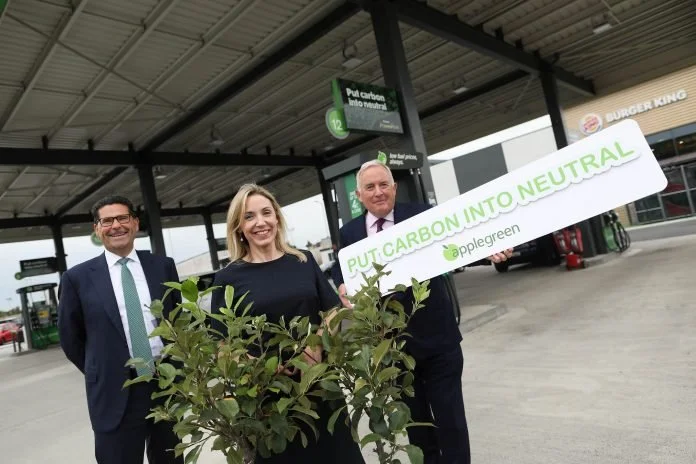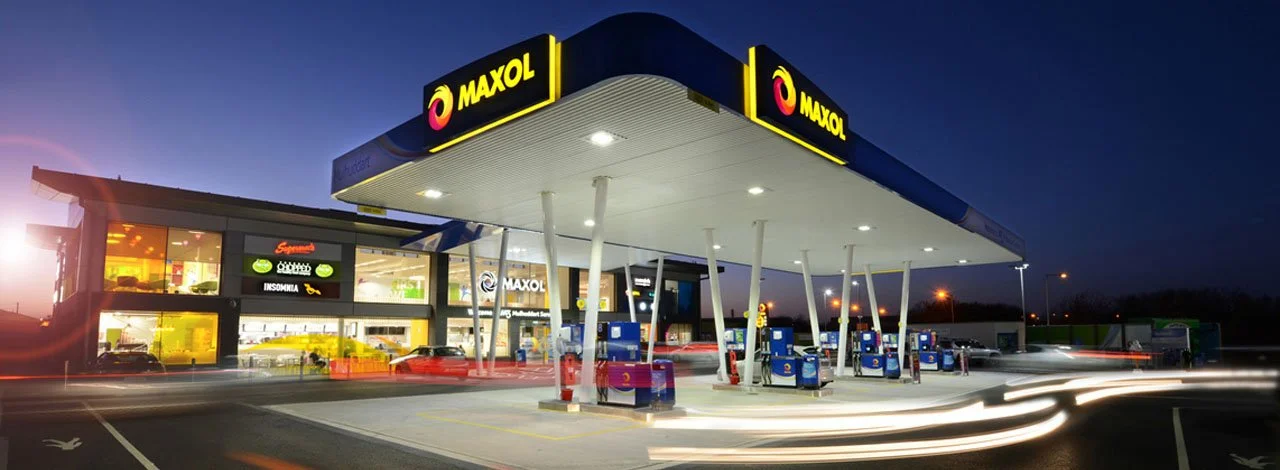
Death of the Author: Greenwashing
Ireland, like much of the world, is facing an ever-increasing onslaught of greenwashing, as brands, corporations and politicians look to hide their inaction on the Climate Crisis – or even seek to profit directly from it.
We have published many clear examples over the past couple of years, but it is clear that the tidal wave of greenwashing is only growing in the absence of meaningful legislation – adding to the fear, uncertainty and doubt that many Irish people feel in the face of the Climate and Biodiversity Crises.
Greenwashing, by its very nature, is designed to confuse the reader.
Either by making them delay action out of confusion (thereby continuing to live a high-carbon lifestyle from which corporations profit); or into thinking that real action is being taken to lower emissions by a brand when they are only shouting about it for the PR value.
Of course, there is a third reason for greenwashing; to trick people into thinking they are paying more to live more ethical lives. These campaigns rarely ring true in reality, and are just a way for brands to increase their income while worsening the Climate Crisis.
Today, we look at how a seminal work for critical theory predicted the rise of greenwashing, and how it holds the key to overcoming it.
Death of the Author
In 1967, famed French critic and theorist Roland Barthes wrote his essay The Death of the Author, which explores traditional literary criticism’s practice of incorporating the intentions and biographical context of an author in an interpretation of a text.
This separation of creator and creation is fundamental to the promotion of greenwashing.
It is the specific intention of greenwashing to encourage the consumer – the citizen – to accept misinformation at face value, and accept an advertising campaign as fact.
It does not want the reader to stop and think critically about what they are being told, and by separating the corporation from its own greenwashing, it creates a vacuum in which they can financially profit from the confusion that they have caused.
We can see this no more clearly than in Applegreen’s PowerPlus greenwashing campaign – where they tell customers that, by spending more at the pump on their premium, more expensive fuels, the customer will be ‘offsetting’ the emissions of their fuel and thereby making it ‘carbon neutral’.
The Death of the Author reminds us that critical thought is important to understand the intentions of a piece of writing - or greenwashing. Credit: Macat
This, of course, is a lie.
Applegreen’s fuels are anything but carbon neutral. They are just fossil fuels at a premium price.
Their campaign deceives customers into thinking otherwise, with the promotional copy created by their PR agency – Cullen Communications – conveniently telling customers that the emissions from their fuels will be offset, implying that they won’t worsen the Climate Crisis.
And yet, in reality Applegreen and Cullen Communications are suppressing the fact that they are only offsetting a fraction of the emissions of the fuel – not including the exploration, extraction, refinement and transportation of oil to the end user.
Nor do they tell their customers that it will take up to 35 years for their emissions to be ‘offset’ by the trees that they are planting – or that offsetting only works if we actually cut new emissions.
Applegreen is, then, directly profiting from worsening the Climate Crisis. And being enabled by their PR, marketing and advertising partners.
By repeating the mantra that their fossil fuels are ‘carbon 'neutral,’ Applegreen hopes that this fiction will be accepted as fact - and hide that they are profiting from worsening the Climate Crisis. Credit: Applegreen
Fiction Becomes Fact
In Death of the Author, Barthes writes:
“The explanation of a work is always sought in the man or woman who produced it, as if it were always in the end, through the more or less transparent allegory of the fiction, the voice of a single person, the author ‘confiding’ in us”
“The modern scriptor is born simultaneously with the text, is in no way equipped with a being preceding or exceeding the writing, is not the subject with the book as predicate; there is no other time than that of the enunciation and every text is eternally written here and now.”
If we are to apply Barthes’ philosophy to the subject of greenwashing, the lesson is: by the time the greenwashing claim has been made, it doesn’t matter who has said it, it has already made its terrible impact on misinformation.
We can see this clearly in the Astongate scandal; where the messages of a deliberate misinformation campaign are still being repeated in the press long after they have been widely debunked.
So, the death of the author leaves us with a purposely less clear understanding of the motivation of those behind greenwashing campaigns – be they an oil brand or the PR agency working for an oil brand.
This is crucial to the success of greenwashing – as it means the corporation behind it has been separated from the campaign, and therefore that statement must be taken at face value.
This allows corporations, and their enabling PR firms, to further distance themselves from the greenwashing message – while still ensuring it gets through and has the desired effect. They have killed the author, and our press has enabled that.
Reinstating Accountability
So, we can now understand that the mere repetition of greenwashing statements in our press is fundamental to increasing fear, uncertainty and doubt about the Climate Crisis amongst the public.
And that it, in turns, allows the brands and PR agencies behind these campaigns to substantialise them without any accountability – or as Barthes puts it:
“Once the author is removed, the claim to decipher a text becomes quite futile”.
This also speaks to the lack of an independent, impartial advertising standards agency in Ireland. Few people realise that the Advertising Standards Authority for Ireland (ASAI) is comprised of the self-same marketers and advertisers who are trying to promote such greenwashing.
Yet Barthes also offers the key to how we might overcome the repetition of misinformation promoted by greenwashing:
Greenwashing is rife in the Irish press. Trusted voices - both those of celebrities and the publications themselves - have been coopted to promote misinformation in the face of the Climate Crisis. Credit: Irish Times
“To give a text an Author is to impose a limit on that text, to finish it with a final signified, to close the writing. Such a conception suits criticism very well, the latter than allotting itself the important task of discovering the Author beneath the work: when the Author has been found, the text is ‘explained’ – victory to the critic”
This speaks to the importance of understanding the brand or PR agency behind a greenwashing campaign, so that you may have a critical understanding of their motives and their background – this then sheds new light on the intention of why they are greenwashing.
Are they telling you to buy their most expensive fuel to be green? If so, would they profit from it – and are their claims true?
Is a corporation telling you that you should spend your hard-earned money on a ‘self-charging’ car that has ‘green’ credentials, but in reality they are entirely reliant on fossil fuels to operate – therein worsening both public health and the Climate Crisis for corporate profit?
This is vital if we are to overcome the onslaught of greenwashing in Ireland – it will need the public not to take these promises and claims at face value, but to have a critical mind and call out those brands and agencies who are promoting false or misleading claims – especially those which lead to direct financial profit while also worsening the Climate Crisis.
“When the Author has been found, the text is ‘explained’ - victory to the critic”
Toyota Ireland has been using opinion polls to make claims about its status as a brand taking Climate Action. Credit: Toyota Ireland
You and I
“There is, however, someone who understands each word in its duplicity and who, in addition, hears the very deafness of the characters speaking in front of him – this someone being precisely the reader,” says Barthes.
This is the crux of how to fix the ever-growing barrage of greenwashing. The responsibility lies with us all; us the consumers and us the citizens.
Are we happy to allow the cost of living to increase, to allow more people to die due to worsening air pollution, and happy for corporations to increase their profits by capitalising on this?
If the answer is no – and it should be – the only way to overcome the menace of greenwashing is to think critically. To stop being passive consumers, and to understand that advertising only exists to sell you something you don’t need.
Then we must call it out. Share it on social media, discuss it with friends, educate others who have fallen of well-crafted PR and marketing copy, which prays on their busy lives and their fears about the Climate Crisis, and which misleads them into thinking they are taking action.
As Barthes himself says; “By refusing to assign an ultimate meaning to the text […] is, in the end, to refuse reason, science, law.” We must begin to see greenwashing for what it is, and the effect it has.
Until Irish politicians get their act together and implement legislation against greenwashing – as we have seen in France – it is up to us all to shame brands into ending their tyranny of misinformation for profit.
It is, for this very reason, that we are launching the inaugural Irish Greenwashing Awards on Wednesday 16th February 2022, at 6pm. Visit our Twitter account for live announcements, and join in the conversation using #IGA22.
We hope you will join us.
What To Read Next
The Rise of Greenwashing
We investigate the rising culture of greenwashing amongst Irish brands who are using PR to appear "green" in order to increase their profits - while placing the onus for climate action on their customers
The Problem With PR
We look at the ethics of naming and shaming PR agencies who reinforce greenwashing in Ireland and abroad, and what this means for the climate crisis






